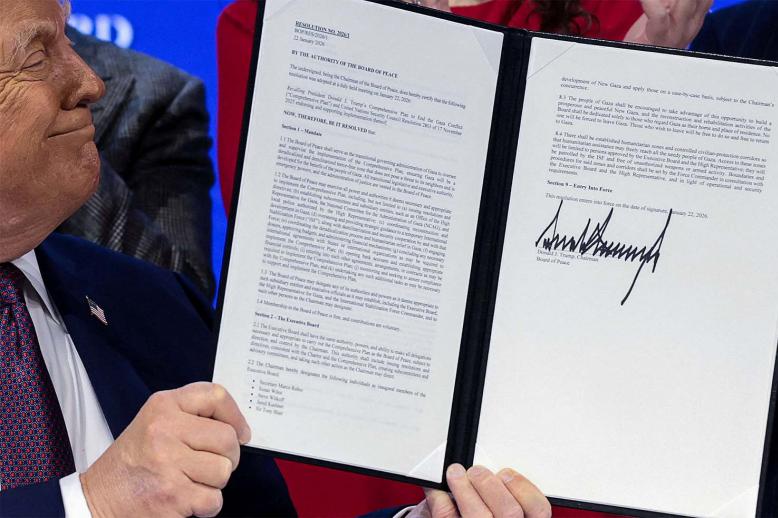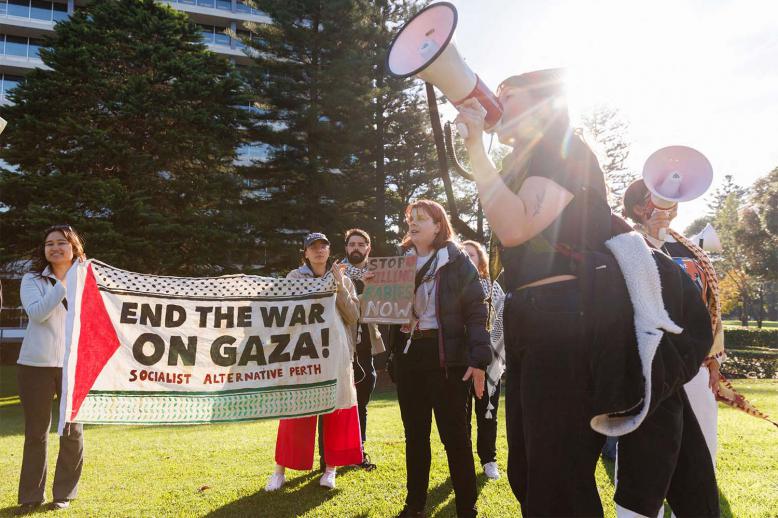The upcoming Middle East upheaval in the post-COVID-19, post-oil crisis world
People around the world are talking of nothing but the COVID-19 pandemic and how long it and its restrictions are going to last.
The world is going to change once the pandemic is over. That’s for sure. Many concepts and practices are going to change, including work relations inside the same institution.
More and more people will be working from home, and many businesses will flourish while others will flounder. It is not yet known which sectors will be the hardest hit, but we can already predict that e-commerce and home delivery services will get a tremendous boost. It is indeed difficult to predict the shape of a world born from the womb of a global pandemic that came out of China.
The first remarkable consequence of the pandemic is the plunge it caused in oil prices, as demand for oil fell and economic slumber gripped the world. This in itself is going to have tremendous consequences far more serious than the pandemic alone. We should therefore be expecting a post-COVID-19 world and a post-oil-and-gas-recession world.
Sooner or later, a vaccine or a drug will be found for COVID-19. But what about the consequences of the horrible, and very likely long-lasting, drop in oil prices?
What is for certain is that many countries will find themselves facing serious danger. Among them will be Iran, Iraq and Syria. Syria is not going to find anyone willing to invest in its reconstruction. The cost of Syria’s reconstruction was estimated at between $200 billion and $500 billion, since the war there is still raging and no one has a precise idea of the extent of the damage left by the nine-year war.
The whole country was shattered and the features of the major Syrian cities and towns have changed. Even in the unlikely event that Syria arrives soon at a settlement, the biggest hurdle will be finding donors and businesses willing to invest in the reconstruction of post-war and post-COVID-19 Syria.
From this standpoint, the recent visit to Damascus by Iranian Foreign Minister Mohammad Javad Zarif did not and could not bring anything new. It was just for show, a sort of message to the world that the Islamic Republic is still present in Syria. Present for what? To carry on its war on the Syrian people? Perhaps it was meant as a sign of support to President Bashar Assad at a time when Russia is starting to have serious doubts about his ability to remain in power. Or perhaps it was a way to patch up Zarif’s faltering reputation, even if he is not very fond of the Syrian dictator.
It must be remembered that Zarif was very offended when Assad landed in Tehran in February 2019 without Zarif’s knowledge. He submitted his resignation in anger, but then retracted it at the request of Iranian President Hassan Rouhani. Assad had come to Tehran in the company of Qassem Soleimani, the recently slain commander of the al-Quds Force of the Islamic Revolutionary Guard Corps (IRGC).
So now we have to wonder if the management of the Syrian file was transferred from the Quds Force to the Iranian Foreign Ministry. It’s a legitimate question, but the real question is what can Iran do for Syria in light of the fall of oil and gas prices, and in light of the US sanctions that have affected the Iranian economy — far more than the Iranian regime is willing to admit.
The least one can say about Iran is that it is not an ordinary state. Half of its population lives below the poverty line and the Islamic Republic still insists on playing the role of a dominant power in the region. Let’s face it, Iran, which is rejected by the Syrian people, can offer nothing to Assad in the post-oil crisis world. Even Russia itself is in the process of revising its Syrian strategy, if it had one in the first place. It realises well that the post-COVID-19 and post-oil crisis world is going to be quite different from the one of its heyday in Syria. So, it is now forced to rethink its strategy in Syria and compromise with Turkey, which is now occupying part of northern Syria.
Iran is threatened and Syria is threatened. It is also the case with Iraq. That country is mired in a deep crisis. Since 2003, hundreds of billions of dollars have found their way to the state treasury, but then evaporated into thin air, siphoned by a corrupt system based on cronyism and sectarian quotas. Iraq is now penniless. Anything that the Iraqi sectarian parties and their declared and undeclared affiliates have not siphoned was in turn looted by Iran. Ninety per cent of Iraq’s revenue comes from oil, and the bottom has dropped off oil prices. So, whether or not prime minister-designate Mustafa Kadhimi succeeds in forming a government, it won’t change a thing. Where will it find the necessary funds to pay the wages of about seven million public servants?
Iraq has been a failed state since 2003. Each day proves that the Iraqi system is not viable, especially when Iran continues to keep the country under its thumb and the sectarian parties do not want to let go of whatever is left of the poor country.
Lebanon’s situation is no better than the others. With the drop in oil prices, it has no future. Lebanon chose to place itself with the so-called axis of resistance, and it is now as bankrupt as this axis. The latter has nothing to offer the former except sectarian militias and empty slogans. Who will come to Lebanon’s aid now? Certainly not the Arab states from which it estranged itself.
What’s worse is that there is no one in Lebanon with enough courage to tell the Lebanese that they have no other choice but to seek the aid of the International Monetary Fund (IMF).
The Middle East can expect major upheavals in the post-COVID-19, post-oil crisis world. The Israelis seem to have understood that because they monitor what goes around them. This certainly goes a long way in explaining why and how Benjamin Netanyahu and his rival Benny Gantz, leader of the Blue and White alliance, suddenly agreed to form what they called an emergency government, after three consecutive general elections within one year.
Why even talk about a Middle East during the post-COVID-19 and post-oil crisis world? Will there really be anyone still interested in stability in that region?
In light of the absence of effective state institutions in Iran, Iraq, Syria or Lebanon, and in light of the absence of funds in particular, these and many other questions will force themselves on us.
Khairallah Khairallah is a Lebanese writer.
Copyright ©2020 The Arab Weekly







